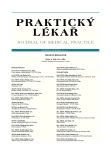-
Medical journals
- Career
A survey of motivational factors in non-medical health professionals
Authors: B. Jirkovská 1; D. Mudd 1; M. Řepa 2; M. Brilová 2
Authors‘ workplace: Univerzita Karlova, Praha, Filozofická fakulta, Katedra sociologie, Vedoucí katedry: doc. PhDr. Jiří Buriánek, CSc. 1; Nemocnice Rudolfa a Stefanie Benešov, a. s., Ředitel: MUDr. Milič Řepa, MBA 2
Published in: Prakt. Lék. 2012; 92(1): 45-49
Category: Of different specialties
Overview
Aim:
The aim of this sociological research, conducted in the Central Bohemian Regional Hospital, was to analyse selected factors of motivation and job satisfaction in non-medical health professionals in order to motivate them more effectively. Respondents assessed the various factors from the list presented on the basis of two criteria: firstly motivational level, secondly satisfaction with the provision of the factors by employer.Methods:
The research was conducted through a questionnaire between September - December 2010. It included all non-medical employees who filled in anonymous questionnaires distributed through the Senior Nurses. 71 % of the questionnaires were returned (250 of 353 respondents). Research was undertaken in several phases. Firstly, we conducted 18 semi-standardized interviews on selected wards; the results were partly used to prepare quantitative questionnaires. In the questionnaires, we created a list of 32 factors which were analyzed with regard to the strength of motivation and satisfaction as well as the differences in the strength of these criteria both in the hospital and on the individual wards. Results with comments, in both oral and written form, were submitted to the hospital management and then posted on the intranet.Results:
We found that the strongest motivating factors for the respondents included- patient satisfaction and care for them,
- good interpersonal relationships in the workplace,
- recognition and achievement in job duties.
Conclusion:
The information given to senior nurses about the preferred motivational factors among respondents on their wards, as well as an assessment of satisfaction level with the factors, could be used for managers to more effectively motivate their team.Key words:
motivational factors, work motivation, work satisfaction, healthcare.
Labels
General practitioner for children and adolescents General practitioner for adults
Article was published inGeneral Practitioner

2012 Issue 1-
All articles in this issue
- Basics of social cognitive and affective neuroscience; XIII. Creativity
- Strategy of antiaggregation treatment after percutaneous coronary interventions
- Potentially inappropriate (risky) drugs at geriatric patients Expert consensus for the Czech Republic 2012
- Economic burden of alcohol abuse
- Problems of colorectal carcinoma in primary care
- Current role of endoscopic ultrasound investigation in the diagnosis of pancreatic diseases – our experiences
- Risk factors for cardiovascular diseases in regular yoga practitioners in comparison with general population
- A survey of motivational factors in non-medical health professionals
- Psychoactive substances abuse and diabetes mellitus
- General Practitioner
- Journal archive
- Current issue
- Online only
- About the journal
Most read in this issue- Current role of endoscopic ultrasound investigation in the diagnosis of pancreatic diseases – our experiences
- Psychoactive substances abuse and diabetes mellitus
- Potentially inappropriate (risky) drugs at geriatric patients Expert consensus for the Czech Republic 2012
- A survey of motivational factors in non-medical health professionals
Login#ADS_BOTTOM_SCRIPTS#Forgotten passwordEnter the email address that you registered with. We will send you instructions on how to set a new password.
- Career

